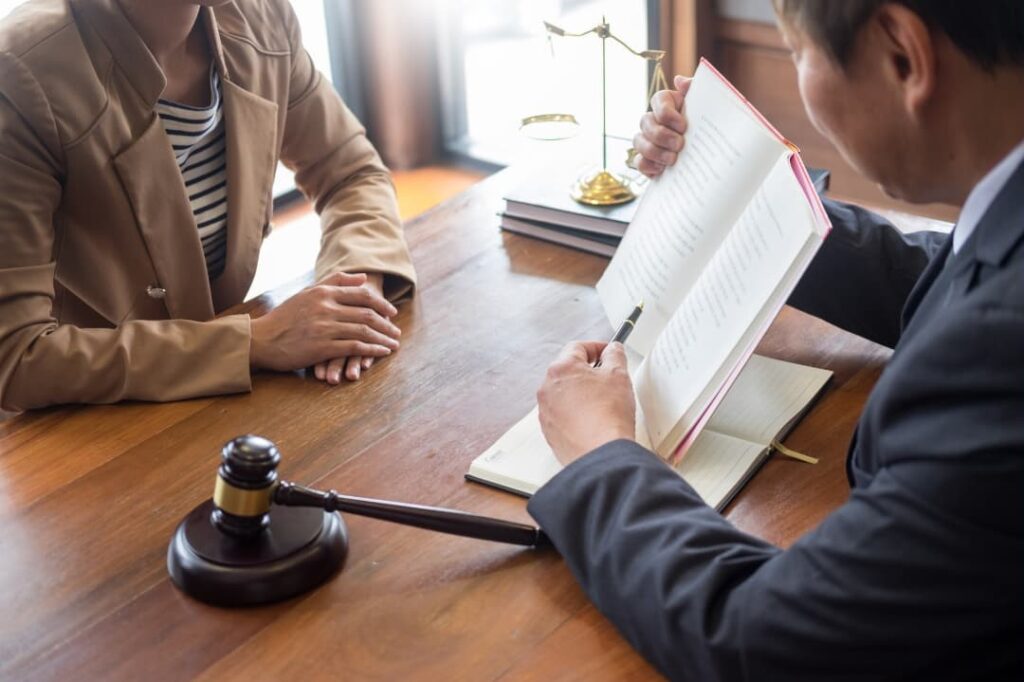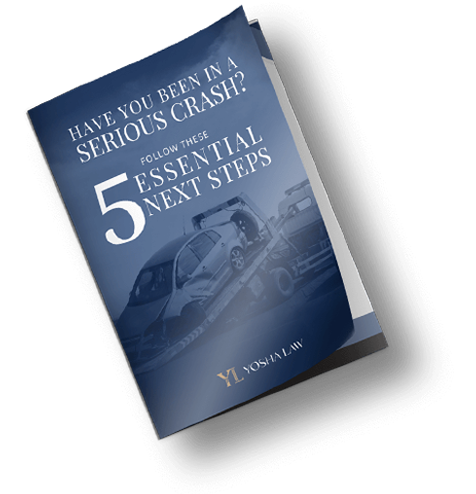The total cost for hiring an attorney for your personal injury case will depend heavily on the details of your case. Most personal injury lawyers work on contingency and will take between 33–40% of your final settlement amount as attorney’s fees. That percentage isn’t the only cost you’ll have to cover in a personal injury case, however. You may have several other case-related expenses that come up depending on how your case goes.
A Breakdown of Costs and Fees for Personal Injury Claims
To understand how much personal injury lawyers cost, you should know what the costs and fees are in a typical personal injury claim. The first thing to note is that “costs” are not the same as “fees.” The money that an attorney charges to handle a case is the “fee.” Every other expense related to the case — administrative expenses, court filing costs, expert witness fees, etc. — are considered “costs.”
You will most likely have to pay for costs in addition to the attorney’s fee. Before agreeing to hire a lawyer, ask them what costs you can expect in your case so you can get an idea of how much you will have to pay.
Typical costs in a personal injury case include:
- Court costs: Court costs encompass the filing fee, paying a daily stipend for jurors if the case goes to trial, and the cost of serving summons papers to the defendant. In Indiana, the filing fee for civil cases is $100.
- Expert witness fees: In personal injury cases, expert witnesses can provide technical details to support your case. They won’t provide an expert report for free, however. For car accidents, a treating physician can usually provide expert testimony but for product liability or medical malpractice, you may need multiple experts, which could end up costing thousands of dollars.
- Administrative costs: Administrative costs include things like postage, copying, travel, and research — everything your attorney has to do to work on your case. For simpler cases these costs can be a couple hundred dollars, for litigation that goes on for years it can reach a few thousand dollars.
- Deposition costs: A deposition is when someone (usually a witness) gives sworn testimony outside of a trial. There must be a stenographer present to record what the person says. Both the stenographer and the transcript they produce come with a charge, which can be up to $500 depending on how long the deposition lasts.
- Investigation: Investigation includes gathering information for the case, such as obtaining a police report or medical records. Some of these documents can be collected for free or very small fees, but if investigation includes sending someone to do in-person research, it could become more expensive.
Personal injury lawyers work on contingency
Most personal injury lawyers offer their services on a contingency basis. If your case is successful and you get a settlement, you will have to give your attorney a percentage of that settlement as their attorney’s fee. If you do not win your case, you do not have to pay a fee to your attorney. Whether you win or lose, you will still have to pay the above mentioned court costs, administrative costs, and other expenses that come with a personal injury case, however.
The contingency fee for a personal injury case can feel substantial: between 33% and 40% of final settlement or court award. Before you agree to start working with an attorney, you should make sure there’s a written fee agreement that clearly states the lawyer’s contingency fee and which other costs and expenses you’ll have to pay.
The Benefits of Contingency Fees
Working on contingency is high-risk and high-reward for lawyers. A good lawyer should be able to tell you upfront if you have a case, and they’ll be more willing to take it if they think you have a chance of winning.
Contingency fees also lower the financial risk for you. If you are already struggling to pay medical bills or get your vehicle repaired, the last thing you need is having to hand over a large sum for attorney’s fees. Personal injury lawyers understand that the ability to pay these costs often doesn’t come until after you’ve received a settlement or award.
Sliding Scale Contingency Fees
Some personal injury attorneys offer fees based on a sliding scale, meaning they lower the percentage based on how far your case progresses. For example, if your lawyer procures a settlement by negotiating with the insurance adjuster and doesn’t have to go to court, they might lower the contingency fee to 25%.
If your case ends up going to trial, you will most likely have to pay the standard 33–40% fee.
Most personal injury cases settle
“Winning” a personal injury case means you either get a settlement after negotiating with the other party or a judge orders the negligent party to pay you a certain amount (known as a court-ordered award). Most personal injury cases don’t go to trial, however, and are resolved when the parties reach an agreement.
If you are fighting your insurance company to get more compensation for your claim, your attorney can negotiate on your behalf to get the insurer to make you a better offer. If the insurer eventually agrees, they’ll give you a settlement. When this happens, you don’t have to go to trial at all.
Why does this matter for how much you pay for your personal injury case? The longer your case goes on, the more money it will likely cost you. Although the attorney’s fee may not change, the administrative costs and information gathering expenses will go up. If your case goes to court, it will take longer than reaching a negotiated settlement — and likely cost you more.
Know how much you’ll have to pay before hiring a personal injury attorney
There’s no hard figure for how much hiring a lawyer for your accident claim will cost, but speaking with an attorney about your case should give you a good idea. Ask a prospective attorney for a consultation and have them break down the likely costs for you, so you can make an informed decision and not have an unpleasant surprise when your case wraps up. At Yosha, we offer a free case evaluation to help you understand the merits of your case.








